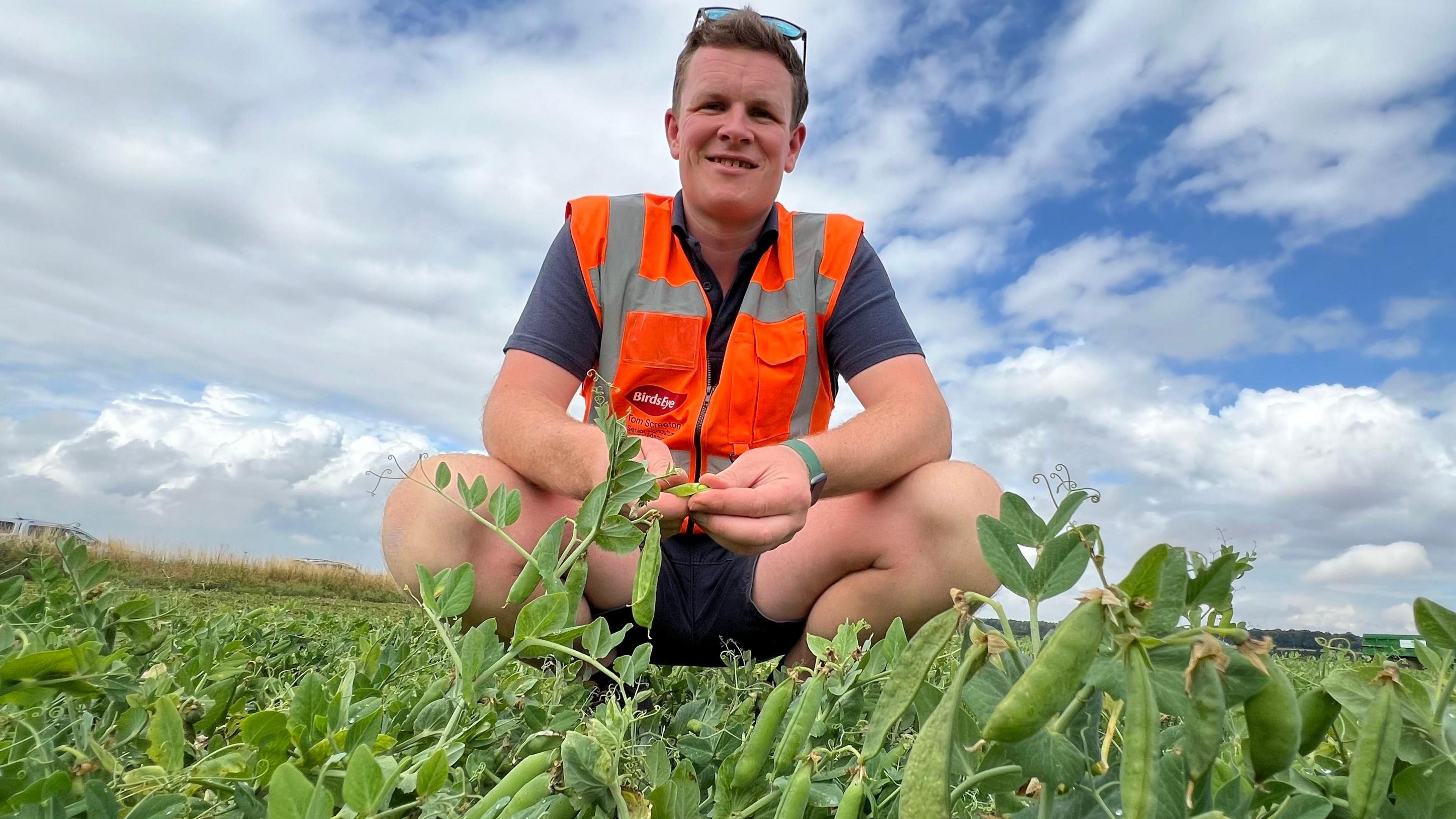'Drought means no hay for our animals' - farmers warn
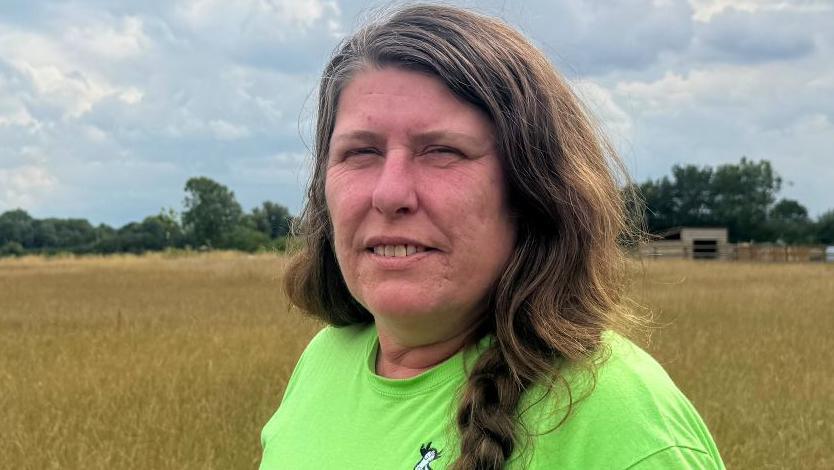
Farmer Angela Serino says her two hay fields were scorched during the drought
- Published
Standing in one of her hay fields on the outskirts of York and looking at the struggling plants around her, farmer Angela Serino says it is a "sorry sight".
The drought in Yorkshire has brought further misery to farmers who say they were banking on a high yield this year, after the past two years were a washout.
Instead, crops have struggled to grow due to being scorched in the hot and dry conditions. The region has seen the driest start to a year in 96 years.
For Angela, who runs Beetle Bank Farm, growing her own hay keeps her many animals fed during the winter, but this year she will need to source and purchase the crop elsewhere.
"It should probably be four times taller than this, we're getting ready to cut it now," she sighs.
"It's very brown, it should be a lot greener."
Angela only takes one harvest a year, either at the end of July or in early August, to allow grey partridges, hares and pheasants to grow up in the hay during spring.
"We try to produce between 50 and 60 big round bales on about 12 acres of land," she adds.
"We're not expecting more than about 12 to 15 bales, if that."
Droughts have been declared in Yorkshire, the North West and the East and West Midlands this year.
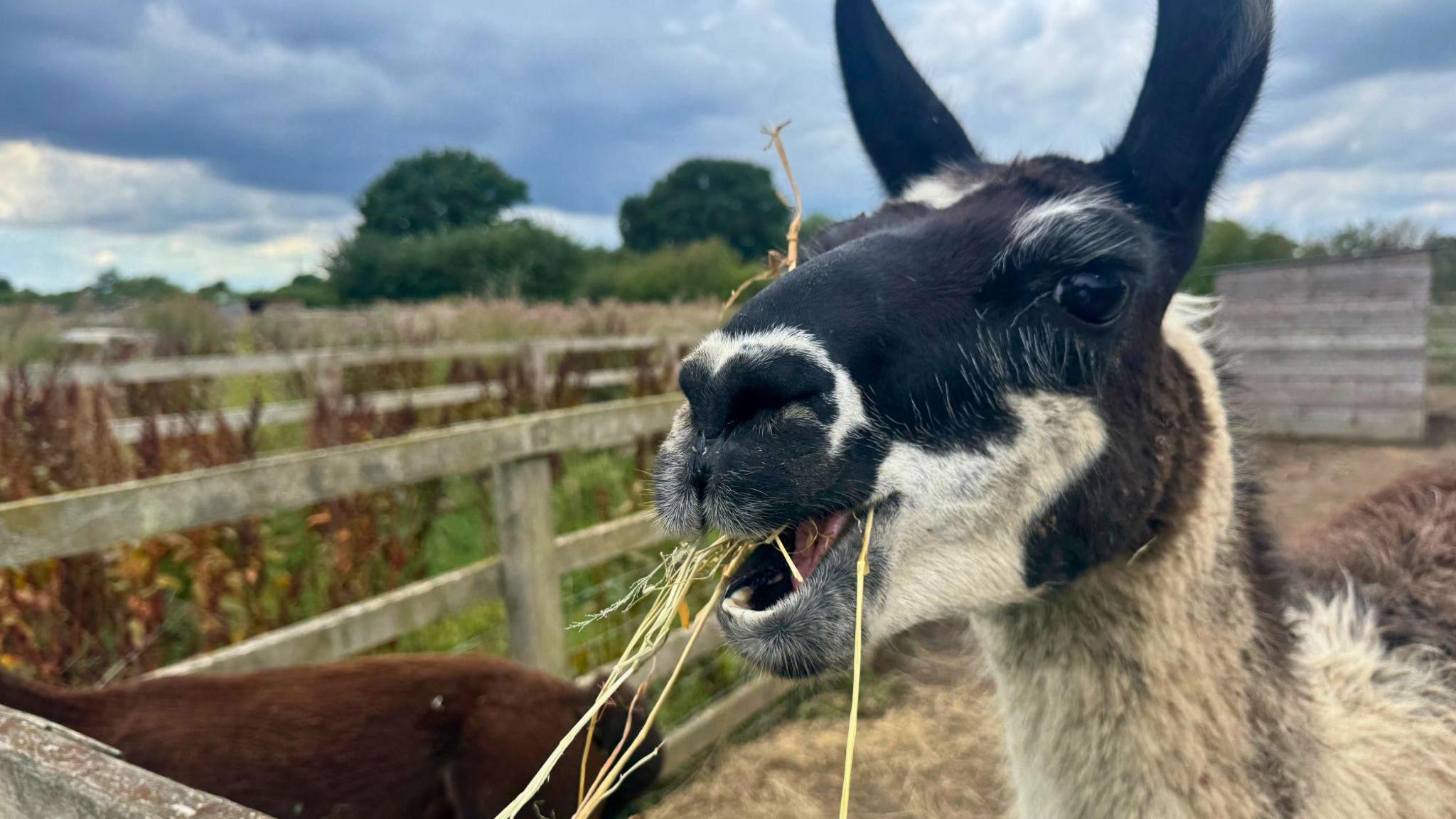
The majority of animals at Beetle Bank Farm eat hay and sleep on straw
Among the animals at Beetle Bank Farm are sheep, llamas, guinea pigs, rabbits, goats, cows and pigs - all of which eat hay.
Angela estimates that she goes through about half a round bale of hay each day to keep the animals fed.
Although she is used to buying in hay to top up her own supply, she will now need to buy a lot more.
"It's about to get a lot more expensive I suspect, so we could be in for a rough ride," the farmer says.
"We're not quite sure how the whole winter is going to pan out yet.
"It's quite a sad time because we collect animals as we go and keep hold of our favourite ones and that might not be possible for the future if you never know whether your animals have got anything to eat or not."
The recent rain will be too little too late for Beetle Bank and might actually slow down visitor trade, she says.
"But this is Britain and the weather pleases itself, there's no rhyme or reason to any of it anymore," Angela shrugs.
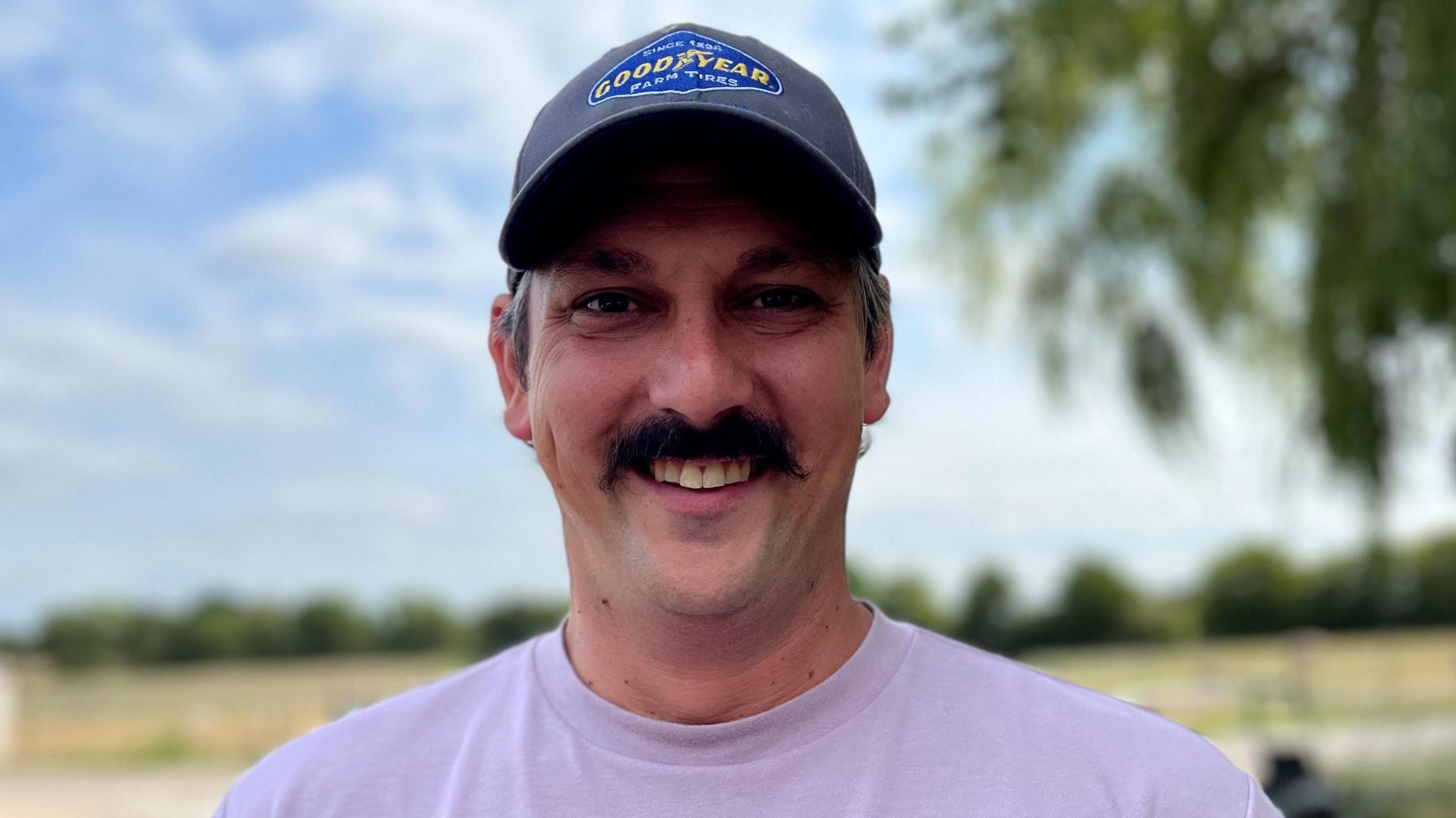
Chad Stevens has brought in his earliest harvest since becoming a farmer
Over in West Yorkshire, Lucy and Chad Stevens are the fifth generation of the family to run the 200-acre cattle and arable farm.
Harvesting is already half finished at Horncastle Farm, in Havercroft between Wakefield and Pontefract, but this time last year it had not even started.
"This is earlier than I can ever remember and we've been here ten years," Chad says.
This year is set to be the earliest harvest since 2006, according to the Agriculture and Horticulture Development Board, due to hot, dry conditions causing crops to mature faster.
"The crops looked better than last year but they're still not great," Chad admits.
"They've just not grown and reached the full potential that we wanted, so the yield's not there and the quality's probably not going to be there."
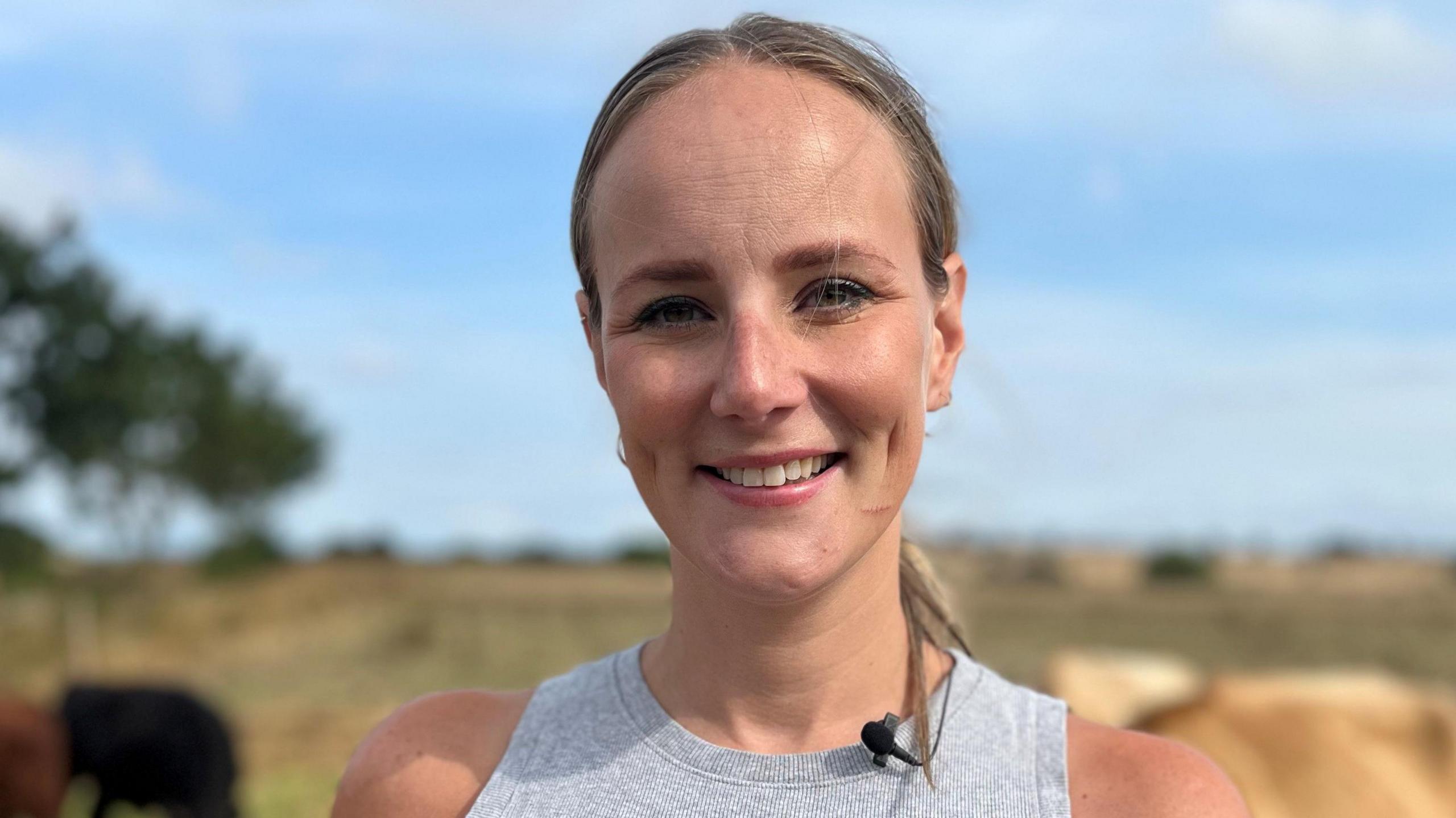
Lucy Stevens says the farm's pumpkin festival may be affected this year
The dry weather is also having an impact on the farm's animals.
"If it is dry, there is no grass, and if there is no grass, there is nothing for them to eat, so you end up with very hungry animals," Lucy says.
"We're having to supplement their feeds with the winter stores of hay and we're buying in food for them, which is obviously very expensive."
Dry conditions are also having an impact on the couple's plans for autumn.
"We planted 10,000 pumpkin seeds and you would hope each seed would grow a couple of pumpkins, but I think we'll be getting more like in the hundreds than the thousands," Lucy says.
"It means potentially we'll be buying them for the pumpkin festival, which after we've paid to plant them, to then buy them in will probably be expensive."
However, the farmers try to remain positive in the face of adversity.
"We're going to plant the crop again next year even though we've had two bad years, because it's ingrained in us," Chad says.
"It's what we do, it's what we want to do, we want to provide that food.
"It does frighten me what the climate's doing at the minute and I am worried about what next year's going to bring.
"But there's one thing for certain, we will keep going and we will do our best."
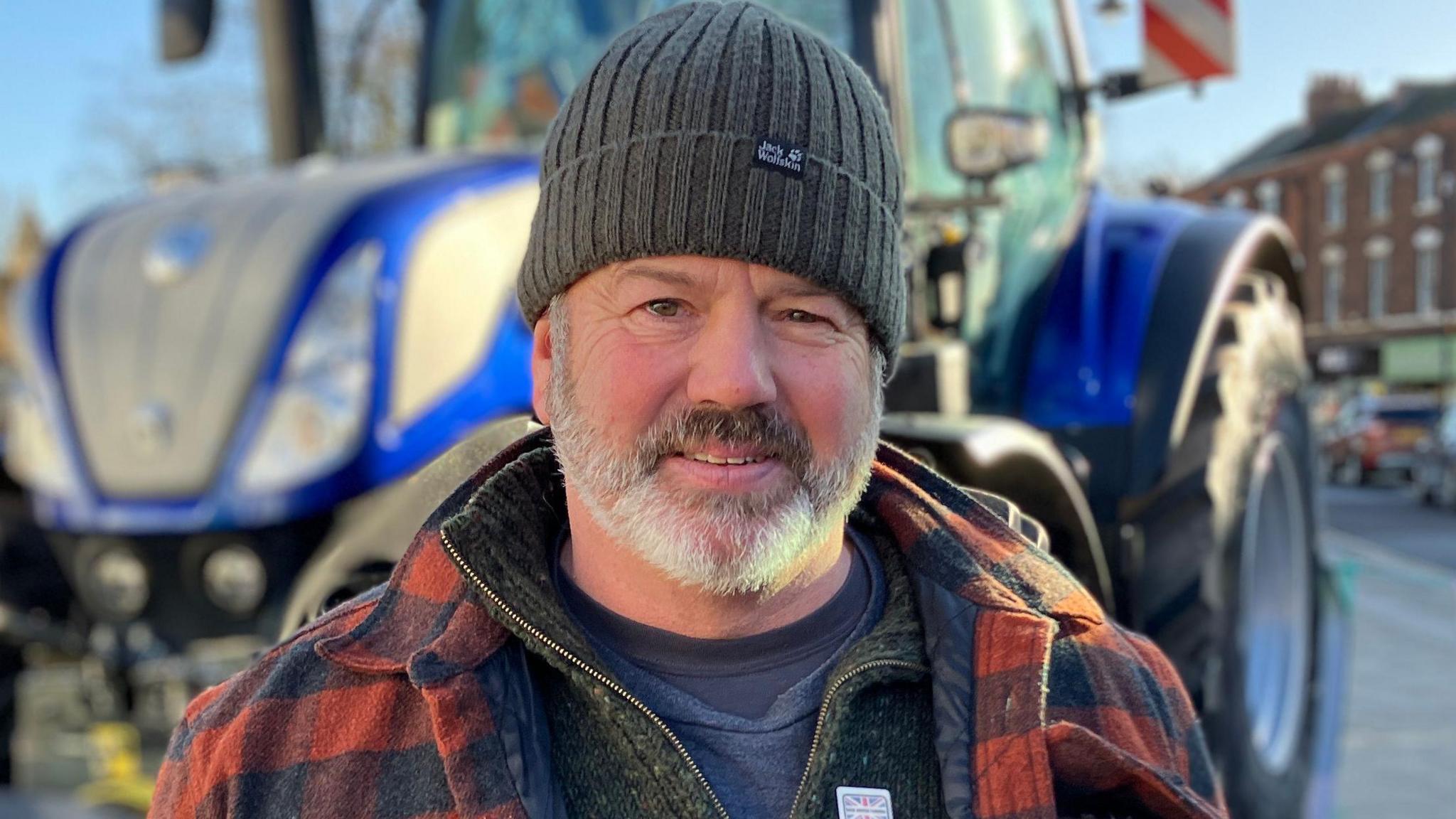
Richard Bramley would like to see more help for farmers struggling financially
Richard Bramley owns an arable farm between Kelfield and Riccall, near Selby, where he grows potatoes, sugar beet, wheat and barley.
"I would say, except for winter barley which was a fairly good yield, just about everything else has been about 25% down on what I would expect," Richard says.
"We've got the added problem that the sale prices are particularly poor as well, we're not getting a lot more than we were getting 30 years ago.
"It's disappointing, it's off the back of two years that have been affected by wet weather."
According to Richard, there are very few ways that farmers can get financial support if they have a poor harvest.
"We can't control the weather but farmers have got to have the resilience to be able to sow next year's crops and we do that with the money that we've earned from this year's crops," he says.
"There comes a point where you start to get into a very difficult situation and you're having to borrow money."
He says farmers need a "backstop" to help them if they have a bad year.
To make extra cash, farms are diversifying and Richard says he opened a tourism business 20 years ago.
"It's a crazy situation when people who are producing food and managing the countryside have to source an income from elsewhere to continue to do that," he adds.
Trying to farm in a drought
Environment Secretary Steve Reed says the government's commitment to farming and food security is "steadfast".
"We are slashing costs and red tape for food producers to export to the EU, have appointed former NFU president Baroness Minette Batters to recommend reforms to boost farmers' profits, and we're ensuring farmers get a bigger share of food contracts across our schools, hospitals, and prisons," he adds.
Get in touch
Tell us which stories we should cover in Yorkshire
Listen to highlights from North Yorkshire on BBC Sounds, catch up with the latest episode of Look North.
Related topics
- Published9 July
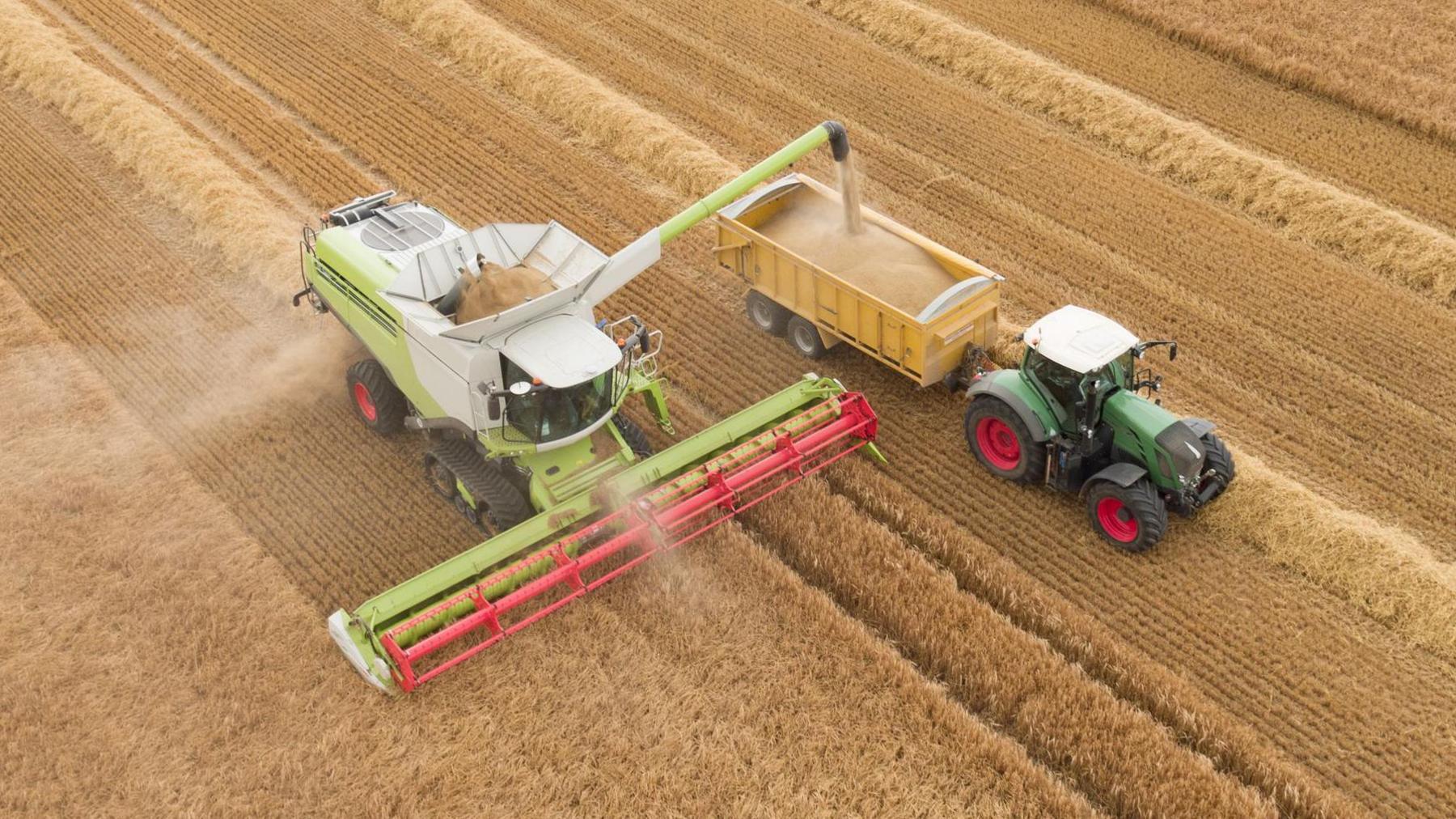
- Published12 June
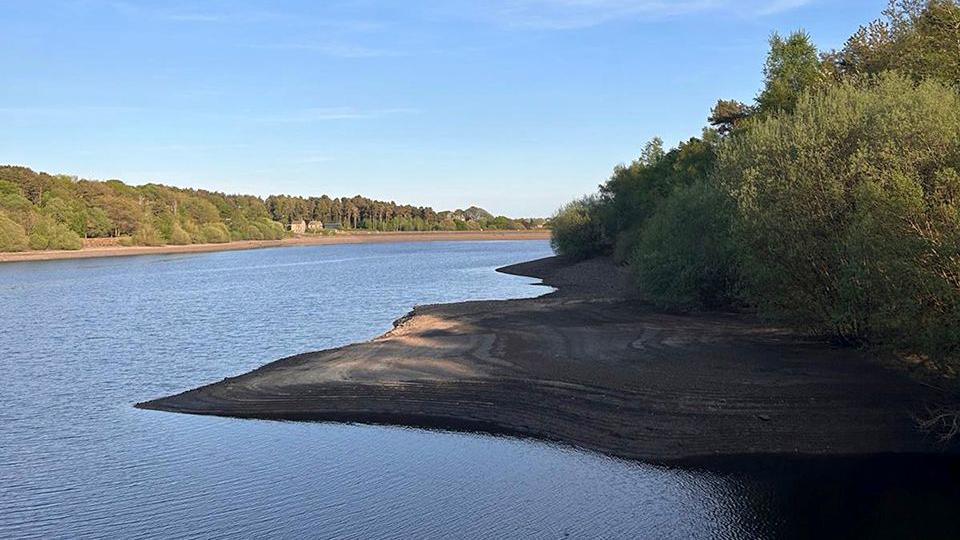
- Published30 July
